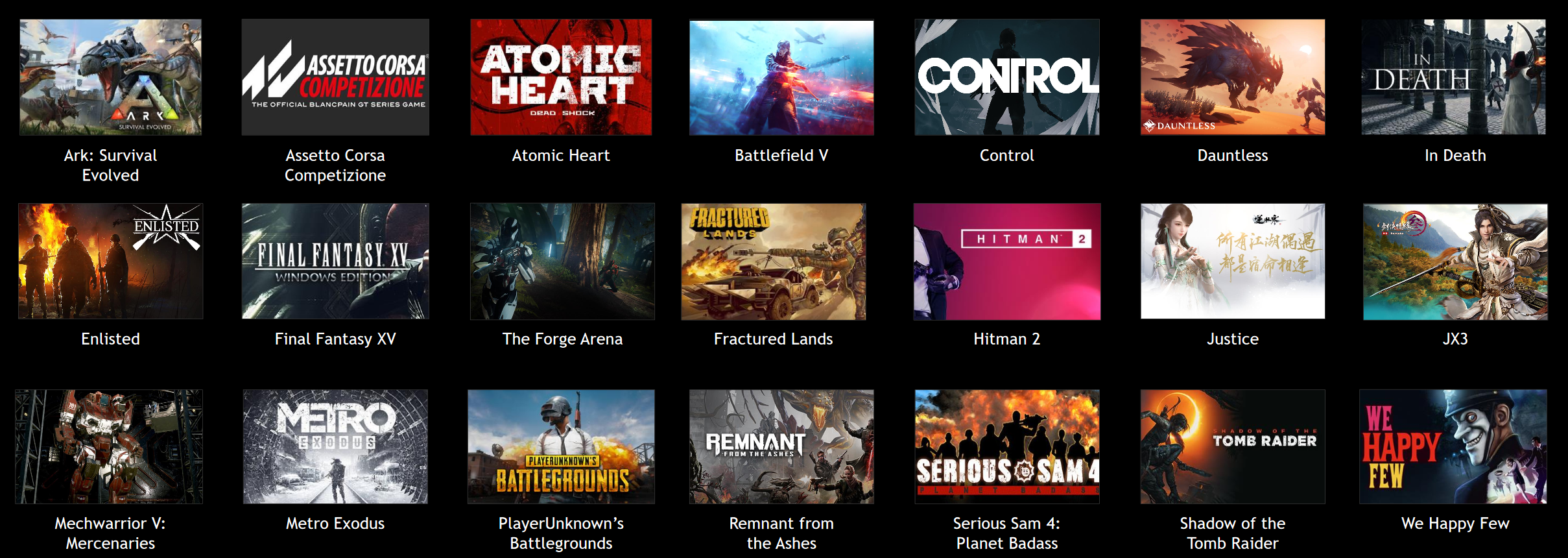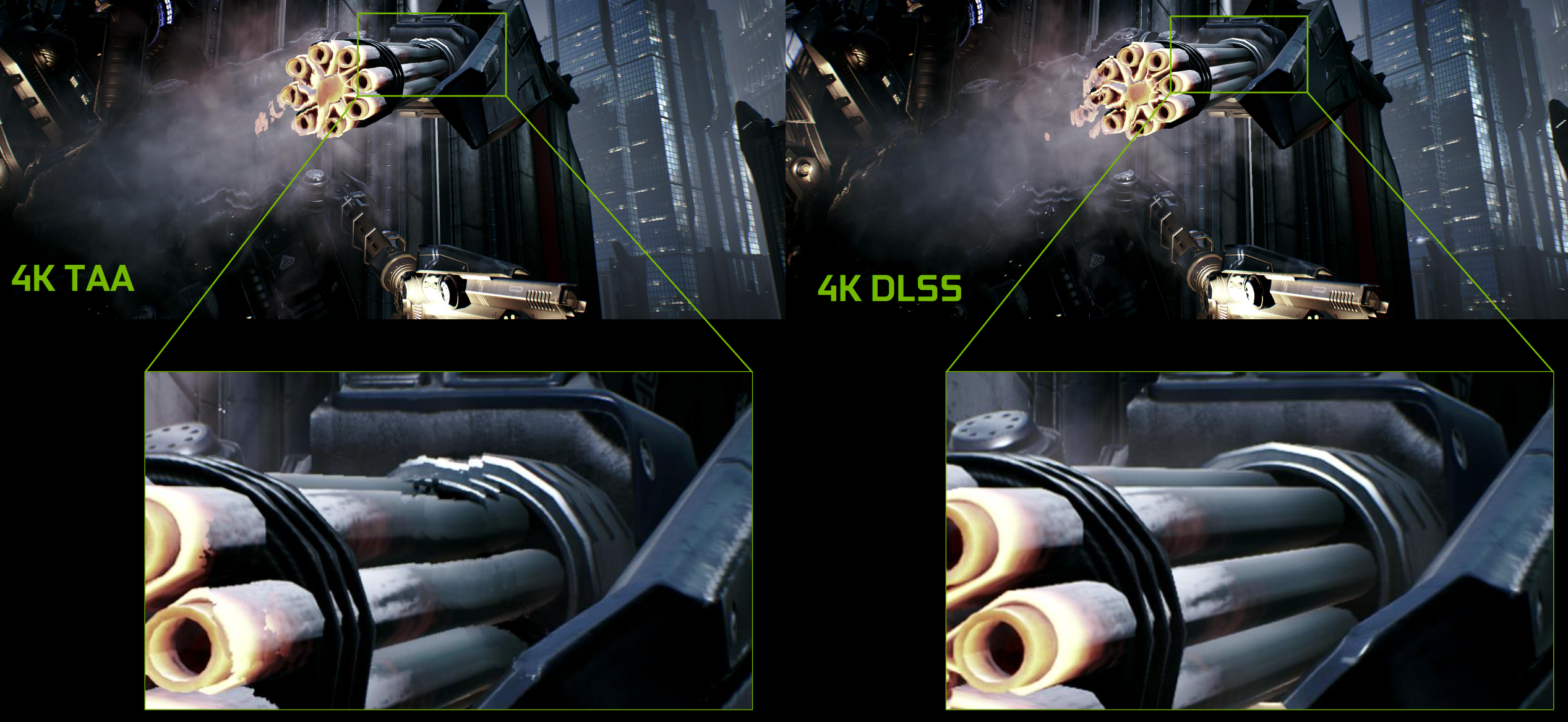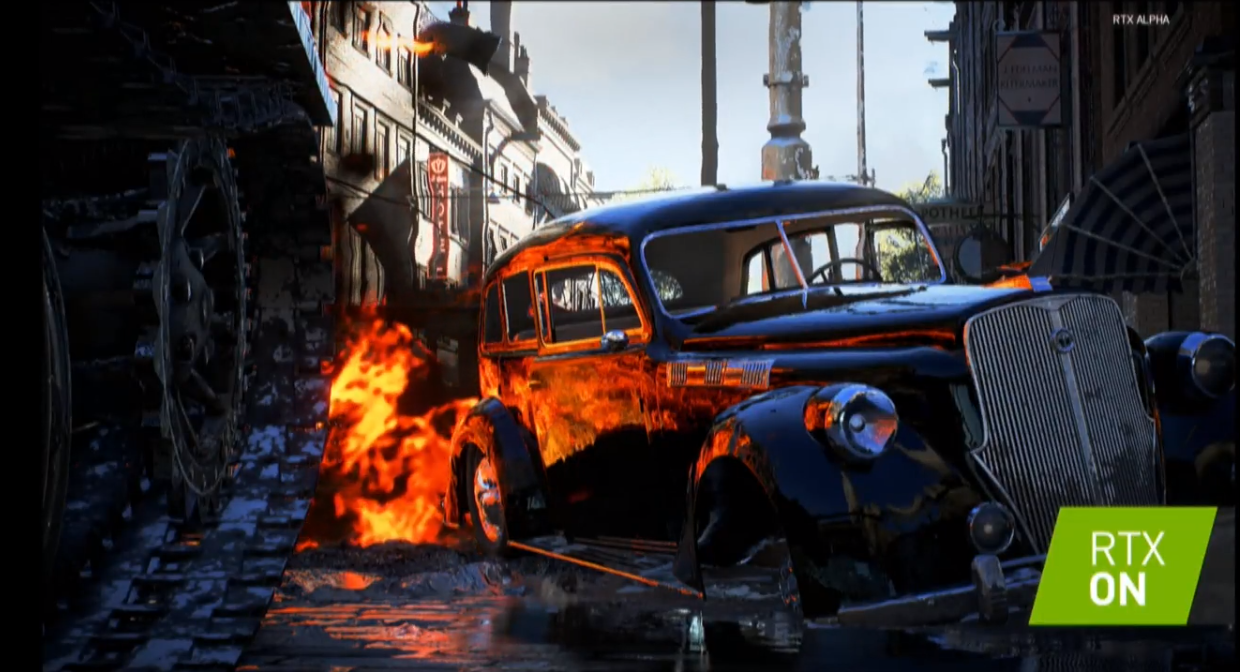Nvidia: These 11 Titles First to Support RTX Ray Tracing
Nvidia’s GeForce RTX 2080 Ti, 2080, and 2070 announcement was full of promising performance figures for games supporting real-time ray tracing through the company’s RTX platform. But with hardware shipping in less than one month and no RTX-enabled games currently available, the big question is: How long will enthusiasts have to wait before experiencing this new technology? We still don’t know. Some of Nvidia’s partners on the Gamescom show floor weren’t yet up to speed on their collaboration, while those who knew about it weren’t at liberty to discuss timing.
There are quite a few games with planned ray tracing support, though. According to Nvidia, this is the current list:
- Assetto Corsa Competizione from Kunos Simulazioni/505 Games
- Atomic Heart from Mundfish
- Battlefield V from EA/DICE
- Control from Remedy Entertainment/505 Games
- Enlisted from Gaijin Entertainment/Darkflow Software
- Justice from NetEase
- JX3 from Kingsoft
- MechWarrior 5: Mercenaries from Piranha Games
- Metro Exodus from 4A Games
- ProjectDH from Nexon’s devCAT Studio
- Shadow of the Tomb Raider from Square Enix/Eidos-Montréal/Crystal Dynamics/Nixxes
Beyond the 11 upcoming games with real-time ray tracing support, Nvidia also shared the names of 16 titles expected to support its Deep Learning Super-Sampling feature, including:
- Ark: Survival Evolved from Studio Wildcard
- Atomic Heart from Mundfish
- Dauntless from Phoenix Labs
- Final Fantasy XV from Square Enix
- Fractured Lands from Unbroken Studios
- Hitman 2 from IO Interactive/Warner Bros.
- Islands of Nyne from Define Human Studios
- Justice from NetEase
- JX3 from Kingsoft
- MechWarrior 5: Mercenaries from Piranha Games
- PlayerUnknown’s Battlegrounds from PUBG Corp.
- Remnant: From the Ashes from Arc Games
- Serious Sam 4: Planet Badass from Croteam/Devolver Digital
- Shadow of the Tomb Raider from Square Enix/Eidos-Montréal/Crystal Dynamics/Nixxes
- The Forge Arena from Freezing Raccoon Studios
- We Happy Few from Compulsion Games / Gearbox
Little is known about Nvidia's DLSS implementation at this point, other than it is trained with 64 jittered samples using a reference ground truth image to generate a higher-quality output, accelerated by the Turing architecture's tensor cores. Overlap between Nvidia's lists means that five games will support both Turing-class features.
We’ll undoubtedly get more information about Nvidia’s developer relations efforts in the days leading up to retail availability of GeForce RTX cards. And we expect Nvidia to provide RTX-enabled content to flavor our review of its new cards. But for now, GeForce RTX’s performance in existing rasterized games remains the big mystery keeping many enthusiasts from placing a pre-order. Nvidia avoided drawing comparisons to its Pascal-based cards in more traditional workloads, while pushing the price of its flagship Founders Edition board up by more than 70 percent.
Although the visual impact of real-time ray tracing is truly immense, the company needs quick adoption of its RTX platform and big speed-ups in today’s games to justify upgrades. We suspect we'll know more about both soon, but for the moment, there's still a lot about the performance and feature compatibility about these new cards that we still don't yet know.
Get Tom's Hardware's best news and in-depth reviews, straight to your inbox.
-
rantoc Considering how long the tech have been there, i would have to say its a rather big list. And consider how easy it is to implement compared to have to "fake" all effects my guess is that adaptation will be pretty good... at least until the console makers will pour their heart out and ask the devs to stop make the PC games gfx to good (or force with ok ok you cant release it on our console if its sub-pair) and we will be back to another era of consoles holding the future of gaming back.Reply -
traceguitari Very disappointed that Anthem was not a part of either of these lists. If anyone from the Anthem development team sees this comment, please forward the question up through your management team.Reply -
hannibal Also most games only use part of what could be done, just like first dx10, dx11 and dx12 games were mainly dx9 games with some minor add on effects. Only these three will have raytrasing, the 2060 series has not... so very few users actually can play any games that have this technology.Reply
But this is promising. 3=5 years and there may be Also middle range cards that have this technology, and so most users can benefit these upgrades if the game developers start to use them in bigger scale. So this is/may be future technology, just don`t Expect to see it see it fully utilised for Many years! -
deesider Reply
I'd be surprised if Anthem didn't include either or these new features, since it uses the same engine as Battlefield V, which will have the ray-tracing option. Anthem not being released until next year probably meant it just didn't make it to Nvidia's list yet.21251918 said:Very disappointed that Anthem was not a part of either of these lists. If anyone from the Anthem development team sees this comment, please forward the question up through your management team.
-
bit_user Reply
I thought that was describing how they trained the neural network used by DLSS.21251755 said:Little is known about Nvidia's DLSS implementation at this point, other than it employs 64 jittered sample rendering
I wonder whether they're offering this for upscaling movies to 4k. That would make it the ultimate video processsor, especially since they've separately demonstrated temporal interpolation. -
bit_user Reply
This is the big question.21251755 said:GeForce RTX’s performance in existing rasterized games remains the big mystery keeping many enthusiasts from placing a pre-order. Nvidia avoided drawing comparisons to its Pascal-based cards in more traditional workloads
Here's a quick analysis (note that GTX 1080 assumes 11 GHz GDDR5X; not the 10 GHz used at launch):
IMPROVEMENT
===========
Pascal Turing fp32 bandwidth launch MSRP price (FE)
------ ------ ----- --------- ----------- ----------
GTX 1070 RTX 2070 12% 75% 32% 33%
GTX 1080 RTX 2080 8% 27% 17% 14%
GTX 1080 Ti RTX 2080 Ti 11% 27% 43% 72%So, we see a large bandwidth increase for the x70's. But raw compute performance changes little.
The only hope is that architectural changes in the cores manage to boost utilization, although I'd be surprised if we saw the kind of double-digit % increase in that department that would be needed to keep pace with the memory bandwidth improvement. IMO, the main point of the big bandwidth increase is to benefit the Tensor and RT cores.
In any case, we're probably looking at a ceiling of about 30% improvement. That wouldn't be insignificant, but it's smaller than the improvement of both previous generations over their predecessors. -
cangelini Reply21253546 said:
I thought that was describing how they trained the neural network used by DLSS.21251755 said:Little is known about Nvidia's DLSS implementation at this point, other than it employs 64 jittered sample rendering
I wonder whether they're offering this for upscaling movies to 4k. That would make it the ultimate video processsor, especially since they've separately demonstrated temporal interpolation.
You're right, bit. Updated to reflect.



